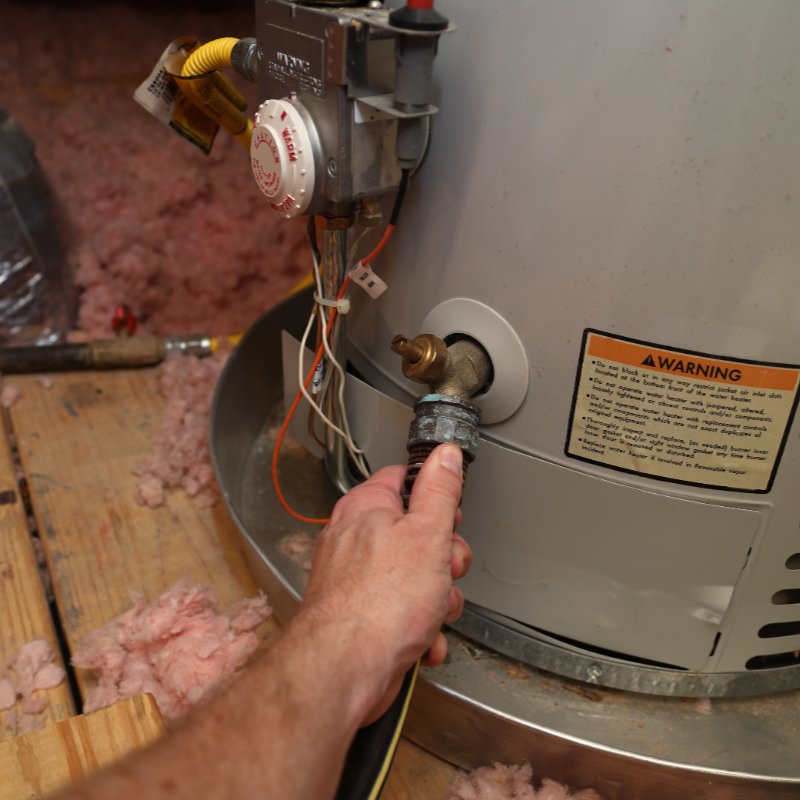Action Plan For Regular Water Heater Problems
Action Plan For Regular Water Heater Problems
Blog Article
They are making a few good pointers regarding Water Heater Repair and Troubleshooting in general in this article underneath.

Picture beginning your day without your routine warm shower. That currently sets an inadequate tone for the rest of your day.
Every residence needs a reputable water heater, yet only a few understand just how to manage one. One simple way to maintain your water heater in top shape is to look for faults frequently and also fix them as soon as they show up.
Bear in mind to turn off your water heater before sniffing around for faults. These are the water heater faults you are probably to run into.
Water also warm or as well cool
Every hot water heater has a thermostat that figures out exactly how hot the water gets. If the water coming into your residence is also hot despite establishing a practical maximum temperature level, your thermostat may be defective.
On the other hand, also cold water may be due to a failed thermostat, a busted circuit, or improper gas circulation. For instance, if you make use of a gas water heater with a busted pilot light, you would certainly get cold water, even if the thermostat remains in perfect condition. For electrical heaters, a blown fuse might be the culprit.
Inadequate warm water
Water heaters can be found in many sizes, depending upon your warm water needs. If you run out of warm water prior to everyone has had a bathroom, your hot water heater is also tiny for your family size. You should think about setting up a bigger hot water heater container or opting for a tankless water heater, which takes up much less space and is much more resilient.
Unusual noises
There are at the very least 5 type of noises you can hear from a water heater, but one of the most usual analysis is that it's time for the water heater to retire.
To start with, you should be familiar with the regular appears a hot water heater makes. An electric heating system may appear different from a gas-powered one.
Standing out or banging sounds usually suggest there is a piece of debris in your tanks, and also it's time to cleanse it out. On the other hand, whistling or hissing noises might merely be your shutoffs letting some pressure off.
Water leakages
Leakages can originate from pipes, water connections, valves, or in the worst-case scenario, the container itself. With time, water will certainly wear away the tank, and locate its escape. If this takes place, you require to change your water heater as soon as possible.
However, before your adjustment your entire tank, make certain that all pipelines are in area which each valve functions completely. If you still need aid determining a leak, call your plumber.
Rust-colored water
Rust-colored water implies among your water heater elements is rusted. It could be the anode pole, or the storage tank itself. Your plumber will have the ability to identify which it is.
Warm water
Regardless of how high you established the thermostat, you won't obtain any warm water out of a heating system well past its prime. A hot water heater's performance may minimize with time.
You will certainly additionally get lukewarm water if your pipelines have a cross connection. This indicates that when you turn on a tap, warm water from the heating system streams in along with routine, cold water. A cross connection is easy to area. If your warm water faucets still follow closing the hot water heater valves, you have a cross connection.
Discoloured Water
Corrosion is a significant cause of dirty or discoloured water. Rust within the water container or a stopping working anode pole might cause this discolouration. The anode pole shields the storage tank from rusting on the within and need to be inspected annual. Without a pole or an appropriately functioning anode rod, the warm water rapidly rusts inside the container. Contact an expert hot water heater technician to figure out if changing the anode pole will repair the issue; if not, change your hot water heater.
Verdict
Ideally, your water heater can last 10 years before you need a change. Nevertheless, after the 10-year mark, you may experience any of these faults much more frequently. At this moment, you must include a brand-new water heater to your budget.
How To Troubleshoot 3 Common Water Heater Problems in Twin Cities
The Water Heater Is Leaking
A leaky cold water inlet valve A loose pipe fitting A leaky temperature and pressure relief valve A corroded anode rod A cracked tank Turn Off Your Water Heater:
Shut off your gas water heater by turning the gas valve on the unit to the “OFF” position. Shut off your electric water by switching its power off at your electrical panel. Look for a two-pole breaker labeled “water heater” and turn it to the “OFF” position. Move the ball valve connected to the water heater to be perpendicular to the piping at a 90° angle. Look for the Leak:
Depending on whether the water is coming from the tank's top or bottom, you’ll want to look for the leak in different locations.
If the leak comes from the top of the tank, carefully look for water escaping from the cold water inlet valve or loose pipe fittings. Rusted hot and cold water valves can have loose connections with the tank, with water leaking out of them.
https://mspplumbingheatingair.com/blog/how-to-troubleshoot-3-common-water-heater-problems
I ran across that piece of writing about Water Heaters Problems while doing a lookup on the web. In case you enjoyed reading our article if you please be sure to share it. Many thanks for your time spent reading it.
Damage control? Call us. Report this page